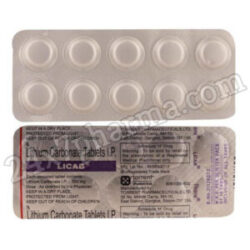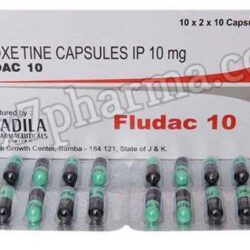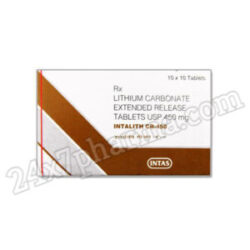Depression
Showing all 3 resultsSorted by latest
Fludac 10mg Fluoxetine Capsule (40 Capsules)
Original price was: $28.$19Current price is: $19.Intalith CR 450 mg Tablet 30’S
Original price was: $7.$5Current price is: $5.It isn’t enough to feel sad for a few days to be diagnosed with depression. It’s a severe medical condition that can profoundly impact every aspect of your life. Symptoms of depression can include persistent sadness, hopelessness, loss of interest in activities you once enjoyed, fatigue, difficulty concentrating, changes in appetite, and even thoughts of suicide.
The prevalence of depression is among the highest in the United States, impacting nearly 16 million adults yearly. Although it is commonly experienced, depression is often incorrectly attributed and therefore left untreated. This is because depression can be challenging to recognize, even for those experiencing it firsthand. Here are some signs and symptoms you should watch if you think you or a loved one may be depressed.
Signs and Symptoms of Depression
There are a variety of signs and symptoms associated with depression. Not everyone who is depressed will experience all of these symptoms, and the severity of symptoms can vary from person to person. However, if you’re noticing several of the below signs and symptoms for two weeks or more, it’s time to ask for professional help.
- Persistent feelings of sadness or emptiness
- Hopelessness about the future
- Activities you used to enjoy are no longer enjoyable to you, or you no longer find them enjoyable
- Decreased energy or fatigue
- Trouble concentrating or making decisions
- Changes in sleep patterns or appetite
- Thoughts of death or suicide
If you’re wondering whether you might be depressed, ask yourself how long you’ve been feeling down and how intense your symptoms are. Depression can be short-lived (acute), but it may also last for months or even years (chronic). And although it’s normal to feel down from time to time—especially when faced with challenging life circumstances—clinical depression is different. Although it may seem hopeless, depression is a manageable condition that with the help of diagnosis and treatment can allow you to live a fulfilling life.



